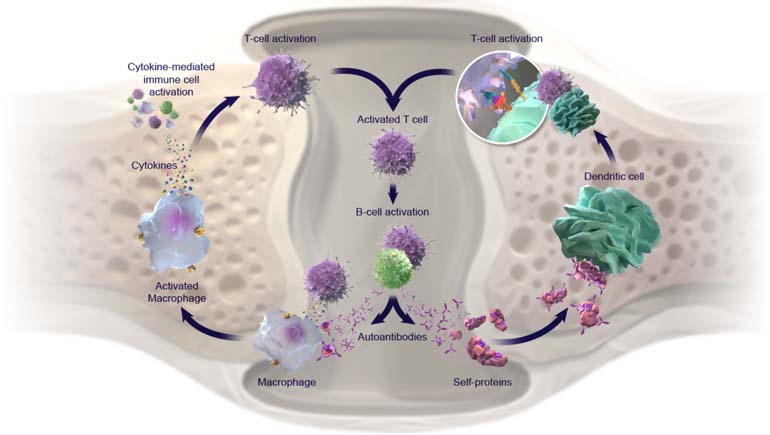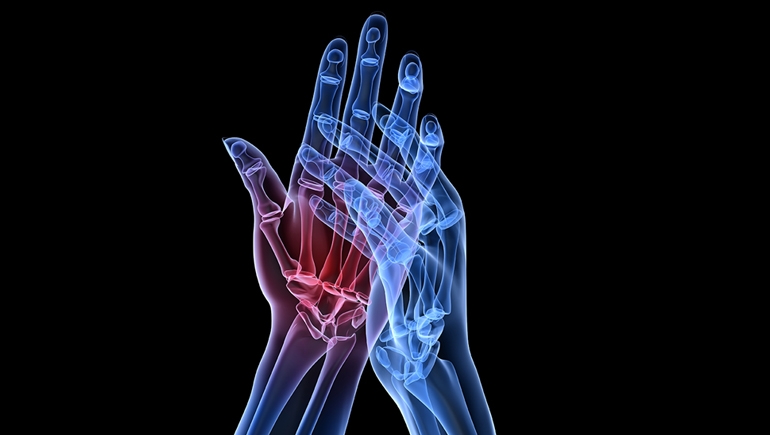Reviewing the Pathogenesis of RA: Who are the Key Players?
Two pathways play a role in RA: B-cell-derived autoantibodies, such as rheumatoid factors (RF) and anti-citrullinated protein autoantibodies (ACPA); and proinflammatory cytokines, including IL-1, IL-6, IL-8, and TNF-α. Production of both drivers is dependent on T-cell activation. While the impact of proinflammatory cytokines in RA is well known, recent research has deepened our understanding of the role of RF and ACPA. Because they can be present years before an RA diagnosis, and may lead to worse outcomes, such as joint damage, these autoantibodies can be important diagnostic and prognostic biomarkers for physicians to understand and consider.
Learn more in Video #1.






